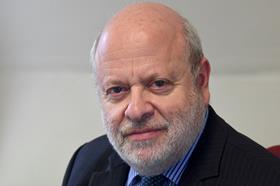Two recent incidents have led me to believe that we have a problem talking about corruption. Even when it may be before our eyes, we don’t want to say the word.

First, I had occasion to consider Lord Bingham’s famous eight principles on the rule of law. The word corruption - or rather the phrase ‘absence of corruption’ or its equivalent - does not appear. It is possible to twist the words of some of his principles to say that he must have meant ‘absence of corruption’ when he said this or that, but it is not there, labelled and out in the open.
Compare this to the factors which another leading contributor to the rule of law, the World Justice Project, lists as its eight factors when judging the state of the rule of law in a particular country. ‘Absence of corruption’ is right up there as number two. Interestingly, it defines absence of corruption mostly in terms of government officials not using public office for gain - and the UK scores well in its index under this narrow definition. However, there is another kind of corruption in which the UK is accused of being a world leader (London being the laundromat for international officials’ corrupt money, for instance). Does this assistance to corruption not count under a rule of law index?
The second incident about corruption followed from a discussion within the International Bar Association about how anti-corruption is dealt with by bars and law societies. The IBA has an Anti-Corruption Committee, and has just published an updated global report on the impact of corruption on the legal profession. The American Bar Association has an International Anti-Corruption Committee (note the use of the word ‘International’ as if it has nothing to consider about domestic corruption).
But the Law Society, which has many policy committees, does not have an anti-corruption committee. We have an Economic Crime Task Force, which used to be the Anti-Money Laundering Task Force, but last year changed its name. Its mandate specifically includes not only anti-money laundering, but also sanctions, bribery and corruption and the Economic Crime and Corporate Transparency Act 2023. I wonder if our approach to corruption, including money laundering, would be different if the word ‘corruption’, which has more shock value, appeared in the title of one of the Law Society’s committees or task forces.
I ask because pointed questions are being asked of us, specifically in the field of corruption. At the end of last year, the government announced Baroness Hodge as the UK Anti-Corruption Champion. She has spent years highlighting the impact of dirty money in the UK. She is reported at saying at a recent parliamentary event that ministers are very keen to pursue an anti-corruption strategy, and listed four areas that were being looking at in relation to lawyers: a single AML supervisor to replace separate supervisors for each legal profession; a revised suspicious activity reports regime; more action over SLAPPs; and a new criminal offence of failing to prevent money laundering and economic crime, to cover also lawyers.
This is not the only recent warning. A report earlier this month by a taskforce on business ethics and the legal profession, hosted by the Institute of Business Ethics, specifically looked at client acceptance by solicitors in relation to kleptocracy, state capture and - grand corruption. The word appeared!
The report challenges the profession to rethink its role, as being not just a service provider but as a steward of public trust. Complying with anti-money laundering regulations is not enough, it says; if the profession does not confront its reputation as a facilitator of kleptocracy and corruption (for instance, for Russian oligarchs a few years ago), it could face the criminal sanctions threatened by Baroness Hodge.
Corruption, corruption – the word needs to be taken out and aired. Anti-money laundering has become a set of rules in which procedure has taken the place of substance. It applies to so many ordinary people and unexceptional circumstances that no-one involved in its application gets very excited about it.
The word (and the meaning of) corruption has a different air to it, broader and not yet tied down and gutted by a set of fixed procedures. It still has the air of something really bad, so bad that we barely ever name it in our profession, or indeed in the country at large.
I understand that mention of it might give ideas to our detractors that we agree that it is a general problem in our profession, which we do not. But maybe our refusal to talk about it is leading to a worse outcome: that our detractors think we do not take it seriously enough and so want to introduce criminal penalties to enforce action against it?
Jonathan Goldsmith is Law Society Council member for EU & International, chair of the Law Society’s Policy & Regulatory Affairs Committee and a member of its board. All views expressed are personal and are not made in his capacity as a Law Society Council member, nor on behalf of the Law Society































4 Readers' comments